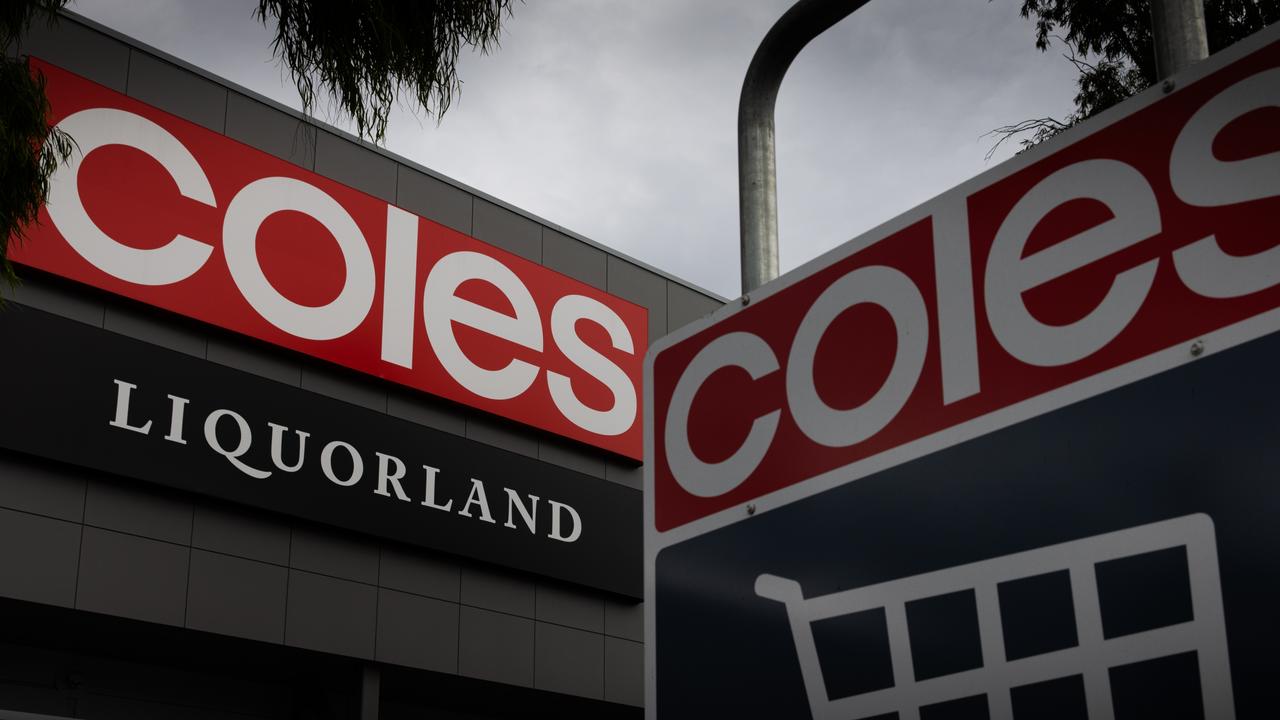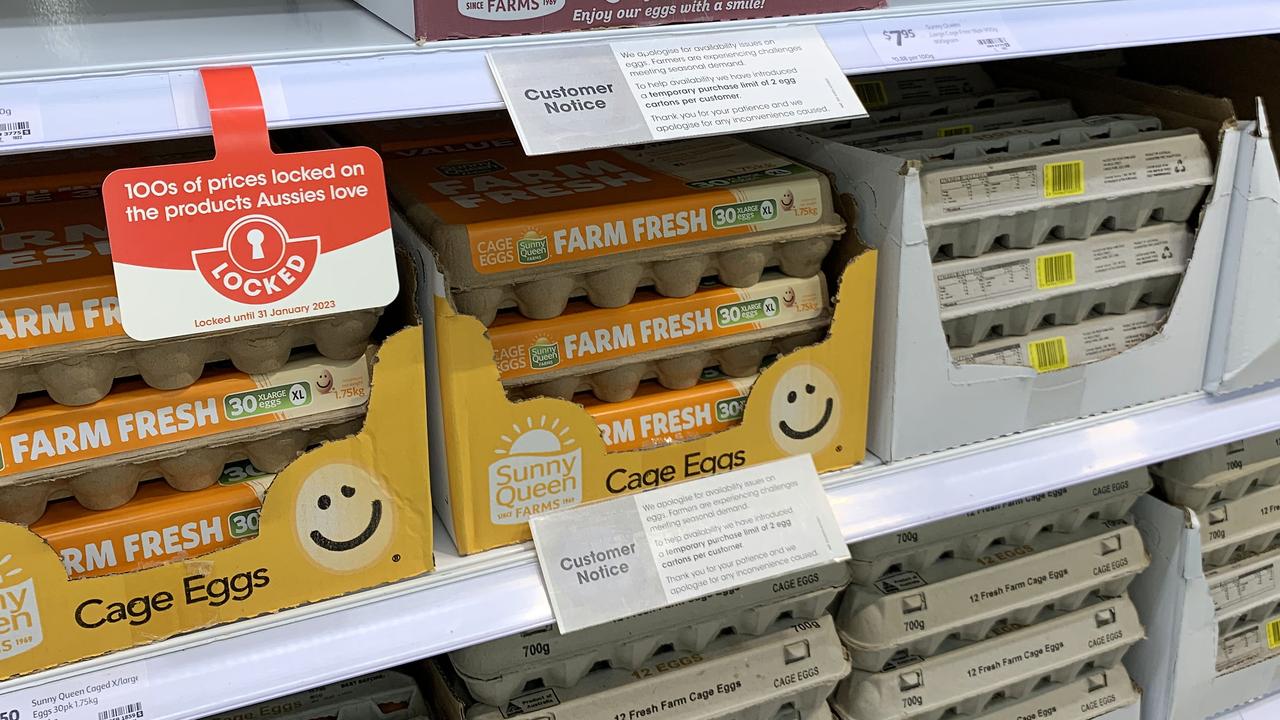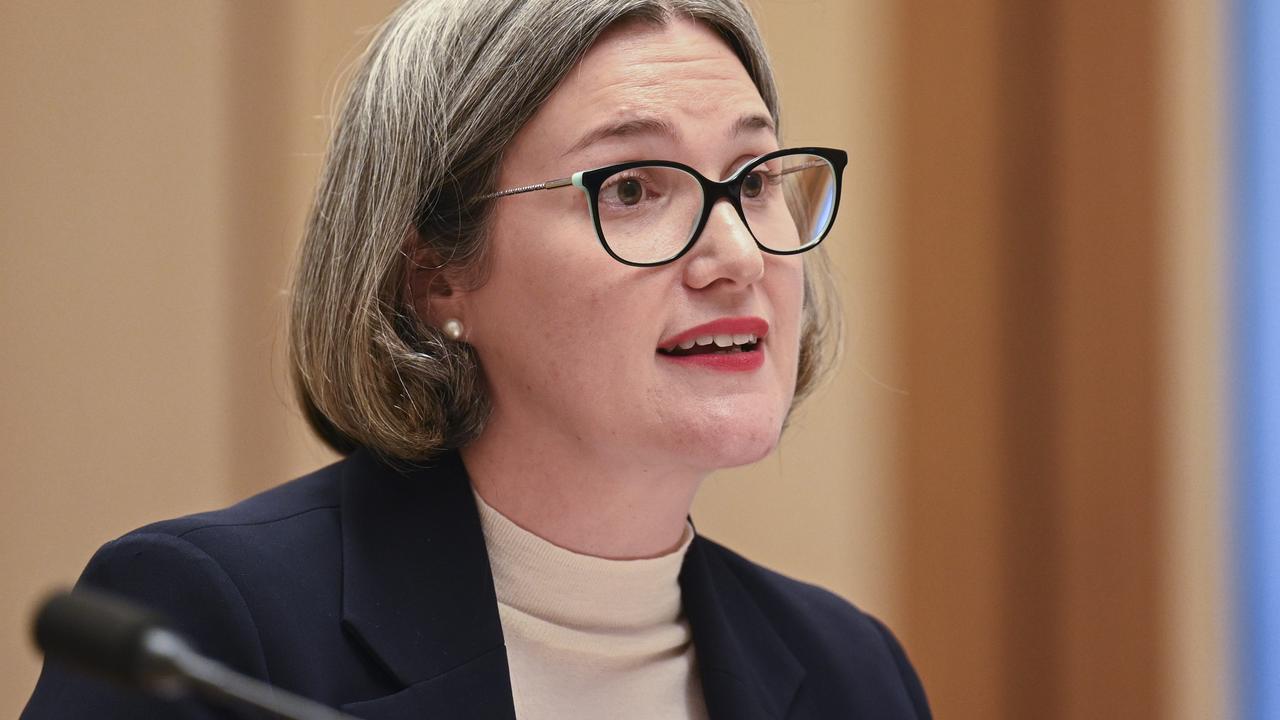Coles: Supermarket staple cash strapped Aussies can't get enough of
Coles has revealed the one item cash-strapped shoppers are stocking up on. It’s become an essential they can’t get enough of.
Cash strapped Aussie shoppers can’t get enough of one particular supermarket staple as they ditch everyday items because they’re too expensive.
Coles CEO Leah Weckert made the observation after the supermarket giant posted at $1.1 billion full year profit on Tuesday.
The Melbourne based retailer, which also owns Liquorland and Vintage Cellars, said on Tuesday profits were up 2.1 per cent while revenue increased 4.4 per cent to $43.6bn for the twelve months to July.
It also increased its profit margin in supermarkets which could see it come under scrutiny as Australians struggle with rising costs.
Woolworths will release its full year results on Wednesday.
Household financial pressure was “front of mind”, Ms Weckert said.
However, she admitted that part of the financial pressure came from grocery prices themselves which alongside rent, fuel and energy bills were key to customers tightening their wallets.
“To minimise spend, customers continue to eat more at home, cut back on treats, eat less red meat and reduce their alcohol consumption,” Ms Weckert told The Australian.
“It’s no surprise that they are telling us great specials and promotions, competitively priced products and loyalty programs are even more important when deciding where to shop.”

Must have item in trolleys
Part of that frugality had led to the rise of “meat free Monday,” she said, where customers were going veggie to make their wages stretch further.
The supermarket chain had also seen increased sales of one of the cheapest forms of protein.
Eggs, Ms Weckert said, were now in more trolleys at greater quantities.
The essential has always been known to make a filling meal for the fraction of the cost of other proteins. But eggs are now even more of a must have.
The supermarket’s top tier Coles Finest range was also going gangbusters with revenue rising by 20 per cent in 2024. That’s despite it costing more than other own brands
That was likely because although shoppers were cutting costs by eating out less they still wanted to spoil themselves even if they were making a cheaper meal at home.
Frozen food was also on more shopping lists.

Ms Weckert said it was difficult to predict when Australians might loosen the purse strings again.
“I think it’s hard to call because so much of it is embedded in what is the sense and belief of the consumer,” Ms Weckert told The Australian.
“A lot of these behaviours are here to stay.”

Rising supermarket profits aren’t a good look right now as shoppers accuse the big retailers of price gouging.
An Australian Council of Trade Unions inquiry into unfair pricing practices in a range of industries, which reported its results early this year, was damning of supermarket price inflation.
That inquiry found between March, 2021 and September, 2023, price increases for items like cheese, bread, milk, eggs, dairy products and breakfast cereals varied between 19 per cent and 27 per cent.
But Ms Weckert said Coles’ net profit after tax for the group, which is 2.6 per cent, had barely budged.
“For every $100 the customer spends, we make $2.60,” she said.
That 2.6 per cent profit margin is consistent with 2023 and lower than 2022.
“There has not been an increase in our profit rate in this inflationary period,” she said.
Indeed the company said payments to suppliers had gone up $2.4bn and wages had increased.
Asked if Coles’ growing earnings left room to lower prices, Ms Weckert said if all profits were redirected to pricing, prices would only come down 3 per cent.
In the supermarkets division, margins went up from 4.8 per cent to 5.2 per cent. That could lead to allegations its creaming more profits by jacking up prices.
But Ms Weckert said margins were boosted by cutting costs and cracking down on theft from stores and loss of stock which were bigger issues last year.
Ms Weckert said “supermarket price inflation” in the past year fell to 2.5 per cent, down from 6.7 per cent the year before.
– with Blair Jackson/NewsWire.





